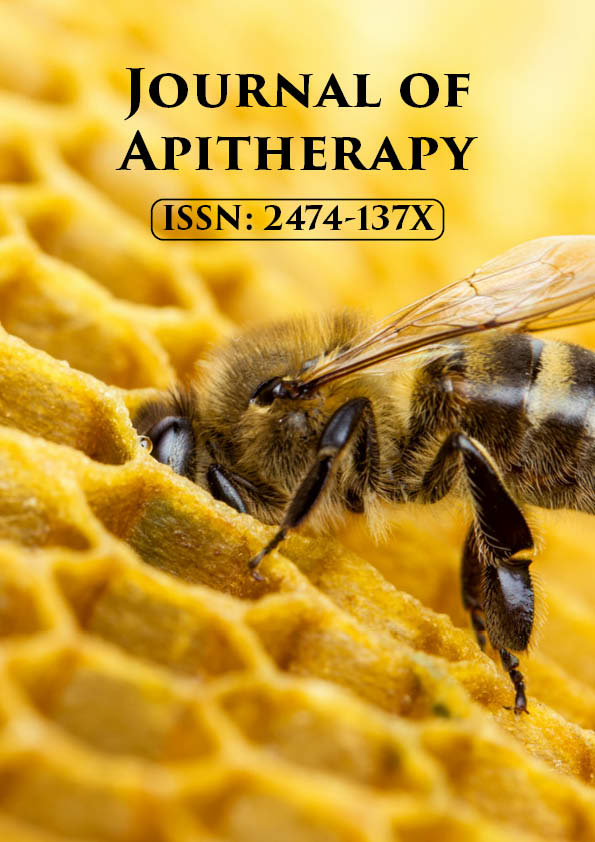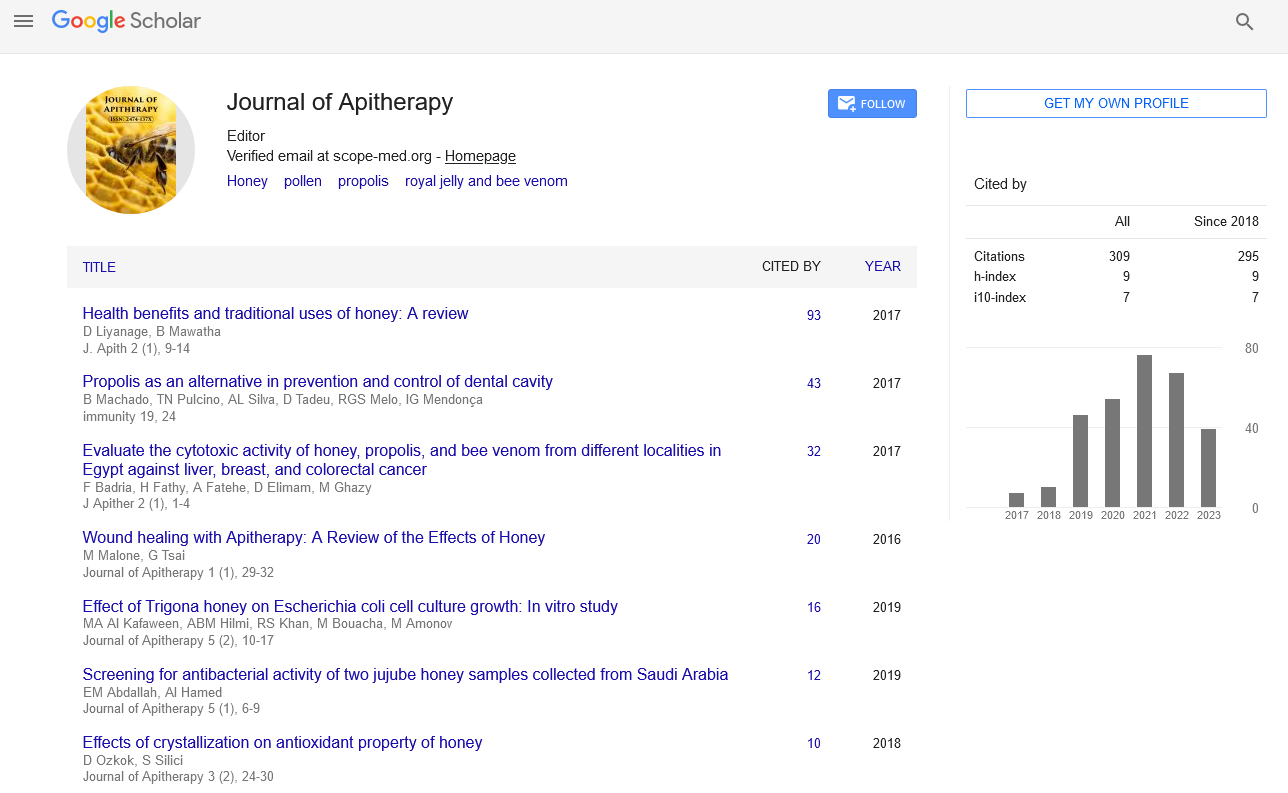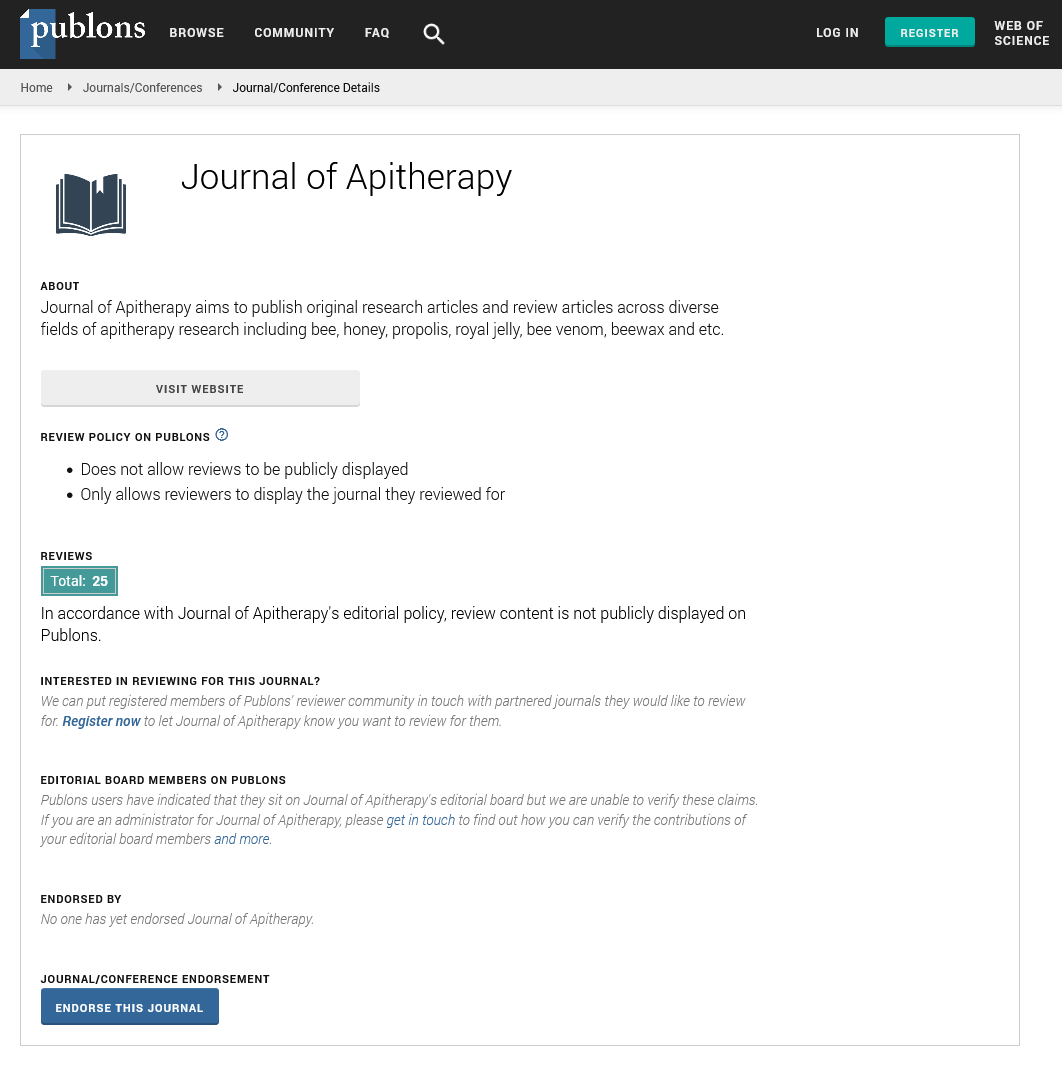Perspective - Journal of Apitherapy (2023)
Manuka Honey: A Natural Antibiotic for Wound Healing
David Hatsun*David Hatsun, Department of Clinical Sciences and Nutrition, University of Chester, Chester, UK, Email: davidhatsun45@hotmail.com
Received: 31-Jan-2023, Manuscript No. japitherapy-23-90340; Editor assigned: 03-Feb-2023, Pre QC No. japitherapy- 23-90340(PQ); Reviewed: 20-Feb-2023, QC No. japitherapy-23-90340; Revised: 27-Feb-2023, Manuscript No. japitherapy-23-90340(R); Published: 06-Mar-2023
Description
One of the first recognised antibiotics traces from prehistoric times and is honey. Honey was often implemented in ancient times as a natural skin protector and antibacterial. Honey has some antibacterial properties because it contains hydrogen peroxide reliable Source. As well, it includes a significant amount of sugar, which can inhibit the activity of certain microorganisms. Also, honey has a low pH. By reducing the moisture content from the bacteria, this helps the microorganisms become dehydrated and eventually die. Honey can be used as an antibiotic by directly applying it to the wound or affected region. It can speed up healing by aiding in the elimination of microorganisms. Moreover, honey can be used orally to help treat infections inside the body. A teaspoon of honey or adding it to a hot cup of herbal tea helps in healthy metabolism. While it is typically safe to be using honey externally or orally, it should never be given to a baby underneath one year old.
Healing power of honey
All through the beginning of time, honey has been utilized to treat a variety of ailments. Scientists only became aware of honey’s intrinsic antimicrobial properties in the late nineteenth century. The organism is protected by honey from microbial harm. Specific honeys also promote the production of unique cell that can heal contaminated tissue damage. Inflammation and pain can be decreased by the anti-inflammatory effects of Manuka honey. The type of honey, as well as how and where it is harvested, all affect the antimicrobial properties of honey. Specific varieties could be a thousand times more potent than the others.
The antibiotic properties of most honey are caused by hydrogen peroxide. But still, certain varieties, including Manuka honey, also have special antibacterial properties. Methylglyoxal is one of the major antibacterial elements of Manuka honey. DiHydroxyAcetone (DHA), a chemical with a high concentration in the honey of Manuka flowers, is transformed into Methylglyoxal (MGO), other component found in Manuka honey. The antibacterial effect is stronger at higher MGO concentration. The intensity of Manuka honey is evaluated using a scale used by honey producers. UMF, which stands for Unique Manuka Factor, is the acronym of the grade. The quantity of three distinguishing materials, DHA, and leptosperin—that are present in real Manuka honey is represented in the UMF classification.
Healing burns and injuries is the primary application of manuka honey in healthcare. It is usually employed to heal minor burns and wounds. According to analysis, manuka honey also is beneficial in treating digestive health issues, eczema, and other skin conditions like dermatitis and itchiness. On whether it is effective for certain conditions, there is, though, insufficient evidence. A medical-grade honey is used to treat wounds. It is applied as an adjuvant and chemically disinfected. So, the basic aid equipment shouldn’t contain the container of Manuka honey in the refrigerator. A healthcare provider should be informed about it and treated for wounds and infections. Recent studies indicate that using Manuka honey to foot ulcers and open sores can be beneficial. Moreover, research suggests it may help heal the wounds and fight infection. Other study suggests that by reducing the development of plaque, Manuka honey may help to prevent gingivitis as well as other periodontal diseases. In some studies, Manuka honey appeared to help prevent esophageal inflammation caused on by cancer treatments like chemotherapy and radiation.
Copyright: © 2023 The Authors. This is an open access article under the terms of the Creative Commons Attribution NonCommercial ShareAlike 4.0 (https://creativecommons.org/licenses/by-nc-sa/4.0/). This is an open access article distributed under the terms of the Creative Commons Attribution License, which permits unrestricted use, distribution, and reproduction in any medium, provided the original work is properly cited.







